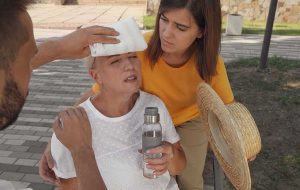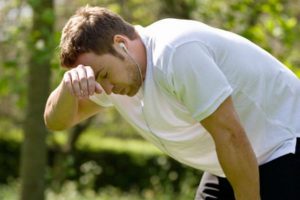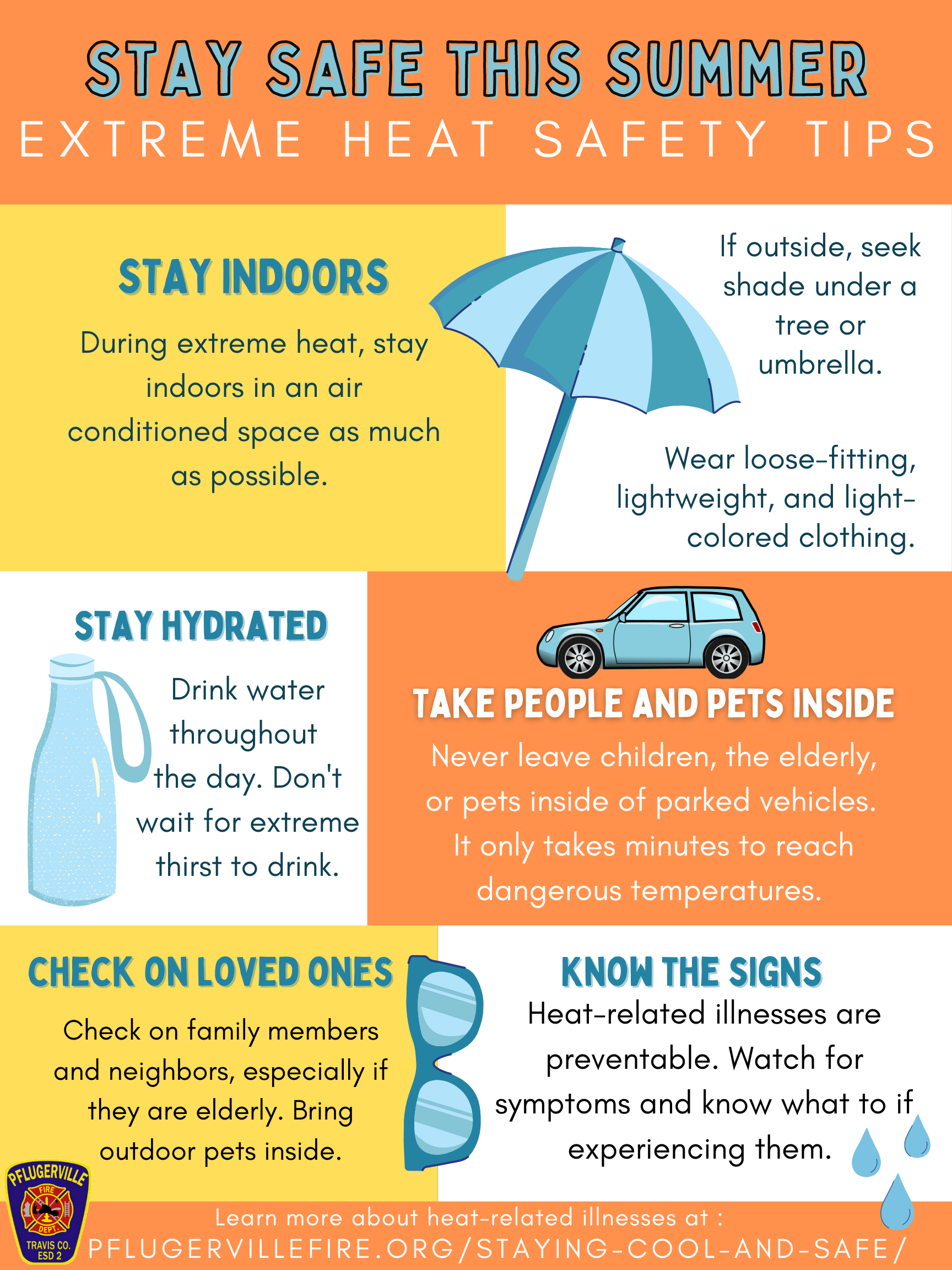Saturday, July 1st, 2023
As summer temperatures rise, so does the rate of heat-related emergency incidents. During very hot and humid weather, your body has a harder time cooling. When the body heats up too quickly to properly cool itself – or when too much fluid/salt is lost through sweating or dehydration – you may suffer heat exhaustion or heat stroke.
Heat-related illnesses are preventable. Please take precautions and have a plan to help ensure you, your family, and pets are able to enjoy the summer weather safely!
Preventing Heat-Related Illnesses
-
- Never leave kids, pets, or disabled adults alone in parked cars
- Slow down! Reduce, cancel or reschedule strenuous activities until the coolest time of the day
- Even if you don’t feel thirsty, proactively bring and drink plenty of water (not very cold) or other non-alcoholic, decaffeinated fluids
- Prevent sunburn through sunscreen, sunhats, and minimizing direct exposure to the sun; a sunburn raises your body temperature and reduces your body’s ability to cool down
- Dress in lightweight, loose-fitting, light-colored clothing to reflect heat and sunlight
- Eat light, cool, easy-to-digest foods such as fruit/salad
- Take a cool bath or shower
- Spend time in air-conditioned locations. Have a list of indoor places you can visit when temperatures are at their highest.
- Make sure outdoor pets have access to shade and plenty of cool water while outside. Bring them inside in the afternoon and early evening when temperatures are the highest.
Heat Stroke Symptoms

- Dizziness
- Throbbing headache
- Nausea
- Shallow breathing
- Altered mental state or confusion
- Rapid and strong pulse
- Hot, red, dry, or moist skin
- Fainting or loss of consciousness
- Body temperature 103°F or greater
First Aid for Heat Stroke
- Heat stroke is a severe medical emergency! Call 9-1-1 or get to a hospital immediately
- Get to a cooler setting, preferably air-conditioned
- Reduce body temperature with cool cloths or a cool (not cold) bath
- Use a fan IF the heat index is below the high-90s
Heat Exhaustion Symptoms

- Heavy sweating
- Cold, pale, and clammy skin
- Nausea or vomiting
- Dizziness
- Muscle cramps
- Tiredness or weakness
- Headache
- Fainting (passing out)
First Aid for Heat Exhaustion
- Heat exhaustion is serious and can turn into heat stroke if not treated quickly. Call 9-1-1 or seek medical help right away if you are throwing up, symptoms continue to get worse, or if symptoms last longer than 1 hour.
- Get to a cooler setting, preferably air-conditioned
- Loosen clothes
- Reduce body temperature with cool cloths or a cool (not cold) bath
- Sip cool water or sports drink.
Additional Resources
https://www.cdc.gov/disasters/extremeheat/warning.html
https://www.ready.gov/heat



